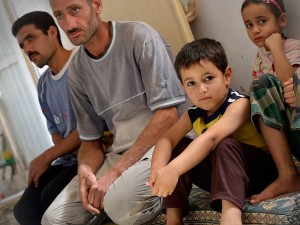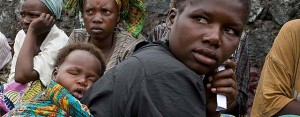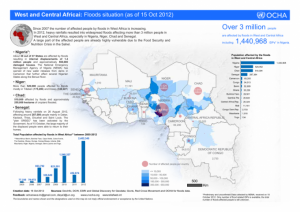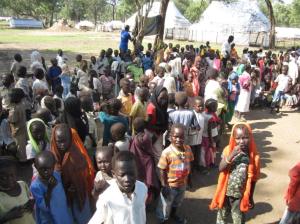Today marks three years since the massive earthquake struck Haiti in January 2010. Anniversary moments like this can strike us in a number of ways, as we are called to remember and reflect back. For some this moment calls to mind the tragedy of the event: the 220,000 left dead, the over 300,000 injured and the 1.5 million people left homeless. One can also recall the struggling infrastructure of an impoverished country brought to a standstill or an international community scrambling to respond. Adding to the tragedy, one can also recall the number of subsequent disasters that have stuck the country, from Hurricane Tomas (November 2010) to Tropical Storm Isaac (August 2012) to Hurricane Sandy (October 2012).
When one looks back in this way it a can all seem a little overwhelming and something better forgotten or ignored. Disasters have a way of doing that. They can tax us as they not only bring their own set of problems to the communities they affect, but also have a way of heightening problems that existed beforehand. This is particularly true of those communities and locales which exist in a state of poverty. And so the double tragedy of disaster: those who least can afford the costs of a disaster are the ones most affected by it.
It is a depressing and devastating place to be. And it is here, in these moments of despair and tragedy, that the church is most relevant to the response. For the church can name and acknowledge the reality of these situations while continuing to claim that they are not the final word. That, like many moments in our lives, in the midst of these tragedies God is still present weeping with us at the pain of the events and also calling us to new life in the midst of them.
As we look back on the past three years in Haiti this call to new life urges us to also look forward, formed but not defined by these events. In Haiti this can be seen in the outpouring of support from around the world to come to the aid of our brothers and sisters in need (the ELCA alone saw an outpouring of gifts topping $13 million). It can also been seen in the thoughtful and intentional focus on projects funded by the ELCA that build on assets already available in the community, helping them invest in their own future.
Here are some of these opportunities. A poultry project started by Lutheran Church of Haiti that has brought stability to prices and therefore hope to those in the program. There is the vocational training center where local Haitians are partnering with companions from the U.S. to learn trades that can be used within their local communities. There is the model village in Gressier, which will provide sustainable (financially and environmentally) housing for 200 families structured with community input and control. There is also the cholera work of The Lutheran World Federation and Lutheran Church in Haiti, working to inform and protect local communities from disease unknown to the region before the earthquake.
It is also the presence of a young Lutheran church in Haiti finding its voice as it brings God’s words of hope and healing to God’s communities in need. This is summed up beautifully in the powerful words of the Lutheran Church of Haiti’s president the Rev. Joseph Livenson Lauvanus: “We Haitians will not be defined by the rubble, but by restoration, for we are a people of the resurrection.”
As we take this moment to remember, may we all be led to heed and celebrate the message of hope borne in these words.
Please take a moment of silence and/or prayer at 4:34 p.m. local Haiti time (EST), exactly three years after the earthquake struck.




